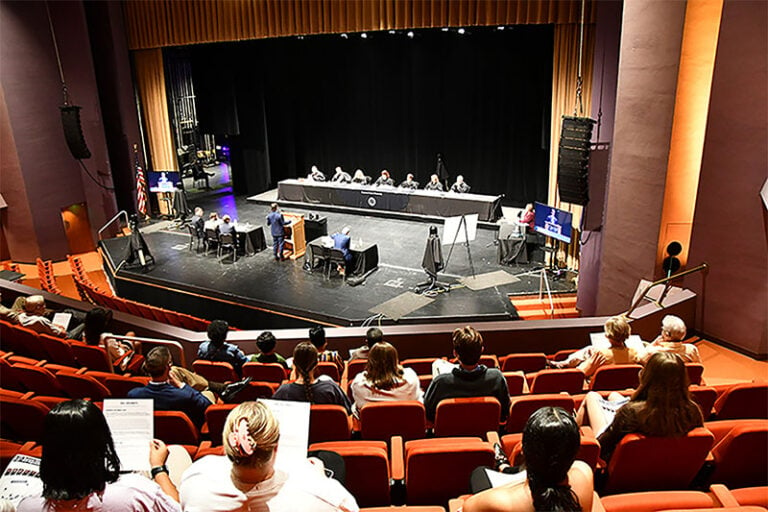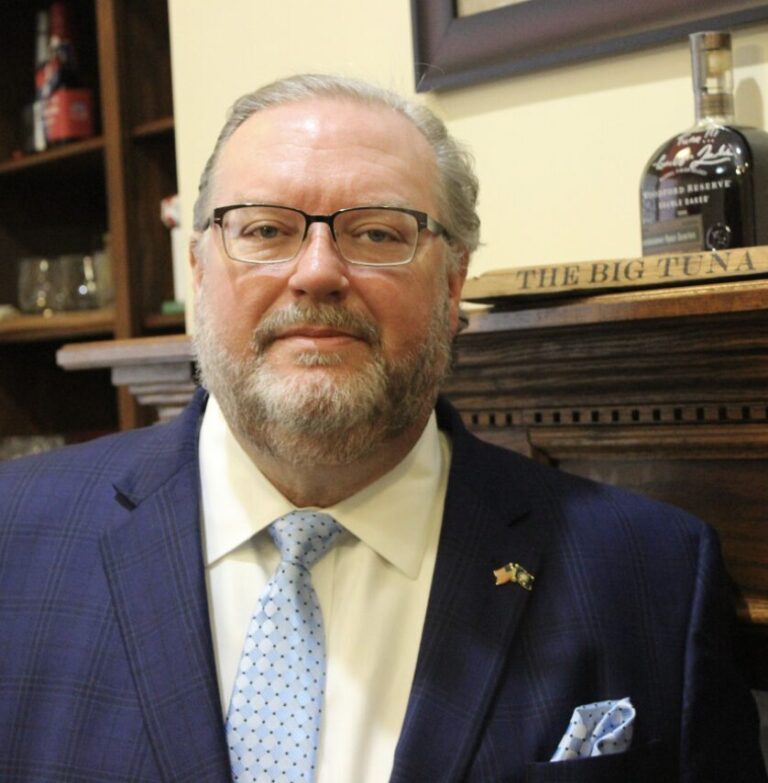By Howard Whiteman
Murray State University
I’ve always wanted to see a hellbender in the wild. The largest salamander in North America, it’s on my bucket list, but I’ve never really had a good opportunity to make it happen.
It’s getting harder and harder to see hellbenders because they are threatened in many states, primarily because their habitat, streams and rivers, have been degraded by pollution and gravel mining. Currently, this species is being reviewed for federal protection under the Endangered Species Act (ESA).

The ESA was landmark legislation in 1973 when it was passed by Congress and signed by President Nixon. It passed because of our alarm about species extinctions, which have continued to occur at a rapid rate due to our growing human population, our consumption of natural resources, and the resulting habitat destruction and degradation. Legislatively, for the first time, the ESA acknowledged that extinction is forever, and that individual species have a right to exist.
Using the ESA, wildlife and fisheries biologists have been able to save and restore an amazing number of species, including bald eagles and American alligators. It is, without a doubt, a conservation success story.
Black-footed ferrets are another species that was brought back from the brink of extinction by the ESA. This species lost its habitat due to agricultural expansion and poisoning of its primary prey, prairie dogs. Biologists thought this weasel-like predator was extinct until a rancher’s dog happened upon one in Wyoming and brought it home.
The U.S. Fish and Wildlife Service (USFWS) swept in, trapped what they could and started a captive breeding program. In concert with state wildlife agencies, biologists restored the species to six states, and the ferrets are well on their way to recovery. That is how our government has always acted under the ESA: they have worked to protect species from extinction, including habitat restoration, as the law requires.
How times have changed. The ESA is being weakened by the Trump administration, who have proposed a rule change. Specifically, the administration has focused on one word: ‘harm.’ In the past, harming a species could be either direct or indirect. In other words, it was illegal to directly shoot or otherwise harm an endangered species and also to indirectly harm it by destroying its habitat.
The Trump administration has decided that habitat destruction should no longer count as ‘harm’ to an endangered species; only direct harm will now be enforced.
Of course, as any grade schooler knows, if a species doesn’t have any habitat, it cannot survive. Can hellbenders live without clean water, or black-footed ferrets without prairie? Can anything live without a home? Could humans live without the Earth?
If the rule change stands, this means that if you choose to dump chemicals or dig gravel out of a stream with hellbenders in it, it’s perfectly fine because you didn’t actually grab the hellbender and throw it on the bank to die.
Or, you can legally rip up the last remaining prairie available for a black-footed ferret, or build condominiums on the nesting habitat for sea turtles, or drill for oil anywhere you please because none of these things directly harm endangered species.
Clearly, the administration has decided to promote business and industry at the cost of biodiversity and healthy ecosystems. Ecology shows us that our personal health and our economy relies on the ecosystem services that come from biodiversity, things that we get for free like clean air and water. Every species plays a role in a healthy ecosystem, so keeping every species is important.
Unfortunately, the Trump administration doesn’t understand this science, or chooses to ignore it.
We don’t have to sit on the sidelines and watch as this happens. We can defend the ESA.
There is a public comment period open on the rule change until May 19. Google “ESA rule change public comment” and you will find the link to make your voice heard. Let the administration know what you think about the rule change, and how important saving endangered species, and their habitat, is to you. Then tell all of your friends and family, and share the comment page with everyone you know.

If that doesn’t work, and the administration fails to heed public outrage over such rule changes, we have other options, like contacting our congressional representatives. You would think that all of our representatives, regardless of party affiliation, would take pause at an administration that was trying to undermine legislation that Congress had passed, rather than attempting to get Congress to change the law, which is their job within the government.
I wonder what will happen to my chances to see a hellbender in the wild if the administration gets its way. I also wonder what might happen to countless other species – from black-footed ferrets to our national symbol, the bald eagle, if these efforts are left unchecked.
Hopefully, if all of us band together, we can make a difference, and sway the administration back to the lawful enforcement of one of the most important conservation laws in human history. Such legislation was signed into law because of the importance people placed on our fellow organisms. We must now remind ourselves of this importance, and once again exert the power of democracy, and our voices, to ensure these species protections stay in place and are enforced by the government.
I urge you to join me in defense of the Endangered Species Act.
Dr. Howard Whiteman is the Commonwealth Endowed Chair of Environmental Studies and professor in the Department of Biological Sciences at Murray State University.

















